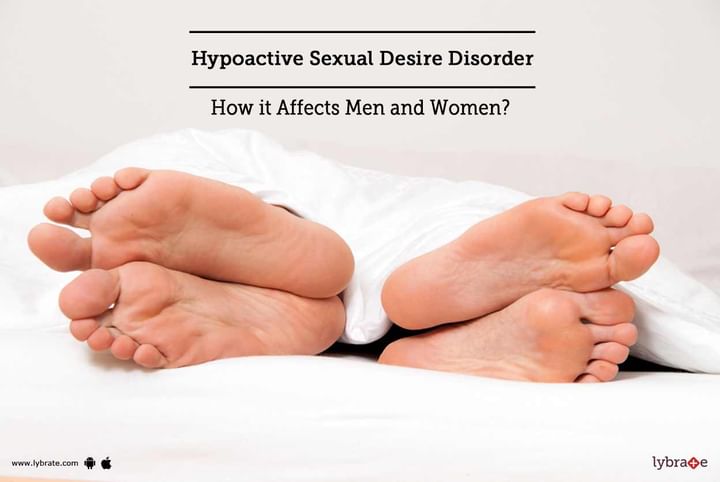Hypoactive Sexual Desire Disorder - How it Affects Men and Women?
Do you feel disinterested in getting physically close to your partner? If yes, then it can be a sign of HSDD, that is Hypoactive sexual desire disorder. It is a sex disorder marked by disgust and disinterest towards sex. This disorder affects both men and women.
Men with Hypoactive Sexual Desire Disorder
Men are generally perceived as highly sexual beings, but in reality, 1 out of 5 men may be suffering from HSDD.
Some possible causes of male HSDD include:
- Psychological issues: Anxiety and stress due to the strain of family or relationship problems, rigours of daily life or mental disorders such as depression are some of the factors that influence sexual desire.
- Medical causes: Diseases (for example: diabetes), conditions (such as high cholesterol, high blood pressure and obesity) and drugs (such as hair loss medications) have adverse effects on sexual desire.
- Hormonal problems: Low levels of testosterone usually lead to low sexual desire. Other hormones, such as the thyroid hormone or prolactin (hormone that governs the development of breast milk) can also contribute to the cause.
- Low levels of dopamine: Dopamine is a neurotransmitter, which is responsible for the pleasure perception in your brain. Low levels of dopamine usually signify low sexual desire.
How it can be treated ?
If the cause is psychological, then sex therapy (psychological counselling based on sexual issues) is used to treat HSDD. But if it is hormonal, testosterone supplements are used.
Women with Hypoactive Sexual Desire Disorder
Female HSDD is more complicated and is difficult to diagnose. HSDD can affect women across all ages.
In women, this disorder can have a wider spectrum of causes, which include:
- Interpersonal relationship problems: Certain problems such as the partner’s performance issues, loss of emotional gratification with relationships, childbirth and becoming nothing, but only a loved one’s caregiver can all lead to low sexual desire.
- Sociocultural influences: Media’s portrayal of sexuality, peer pressure and job stress have negative influences on sexual desire.
- Low testosterone: Women produce testosterone as well, and similar to men, low levels of this sex hormone cause a significant dip in sexual desire.
- Medical problems: Mental illnesses such as depression or medical problems, such as fibroids or endometriosis (a disorder characterized by the growth of uterine tissues outside the organ) affect women, physically and mentally, thus making ‘hypoactive sexual desire disorder’ a possibility.
- Medications: Excessive use of antidepressants, oral contraceptives and blood pressure drugs can lower sexual desire.
- Age: The androgen (sex hormone) levels lower drastically as a woman ages, thus negatively impacting her sexual desires.
Treatment
Sex therapy (therapy that concerns itself with counselling and addressing one’s physical or psychological hindrances to sex) medication changes, diagnosing underlying medical problems, vaginal estrogens and testosterone therapy (therapy that helps in managing the effects of low levels of testosterone) are mostly used to increase sexual desire in women. If you wish to discuss about any specific problem, you can consult a sexologist and ask a free question.



+1.svg)
